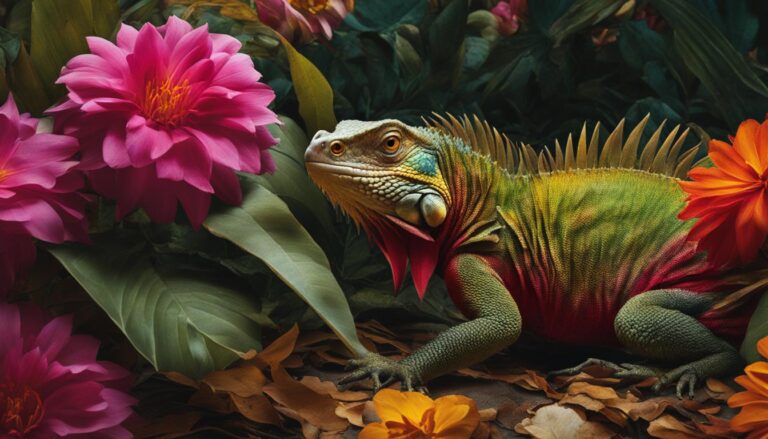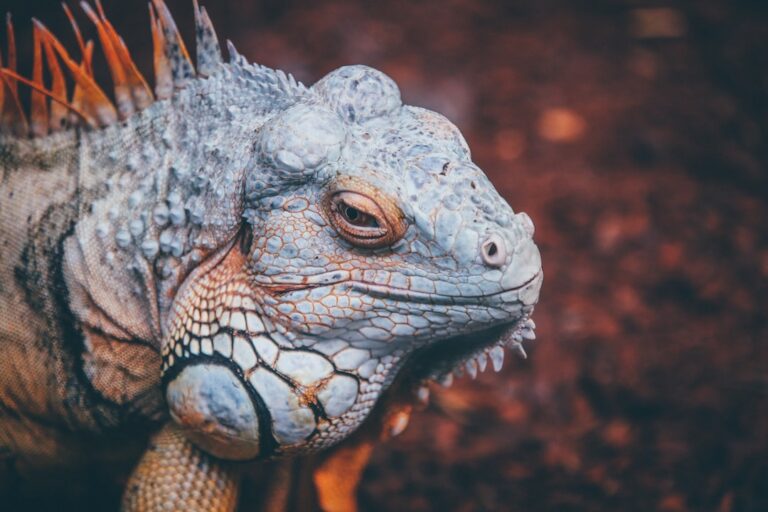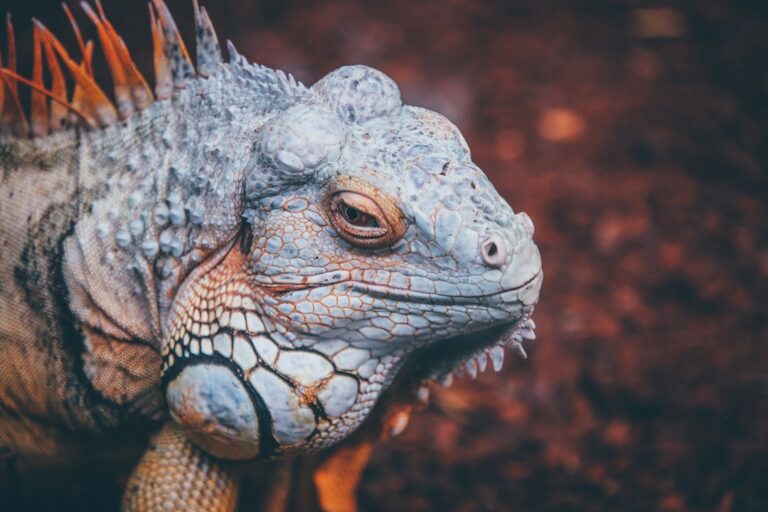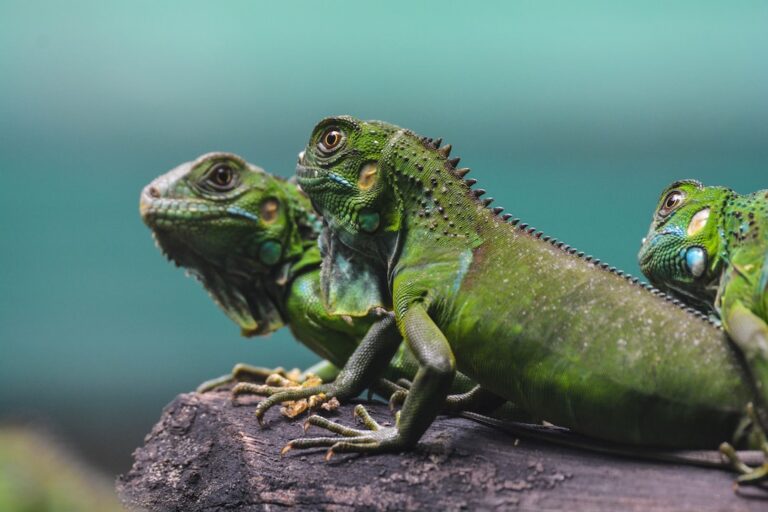Do Iguanas Take Care of Their Young?
Iguanas are a group of reptiles that belong to the family Iguanidae. They are found in various parts of the world, including Central and South America, the Caribbean, and the Galapagos Islands. These fascinating creatures play an important role in the ecosystem as herbivores, helping to control plant growth and spread seeds.
When it comes to reproduction, iguanas have a unique and interesting process. They are oviparous, which means they lay eggs. Female iguanas typically reach sexual maturity between the ages of two and four years old, while males reach maturity at around three years old. During the breeding season, male iguanas engage in territorial displays and fights to establish dominance and attract females.
Table of Contents
Nesting Habits of Female Iguanas
Female iguanas have specific nesting habits that are crucial for the survival of their offspring. After mating, female iguanas search for suitable nesting sites to lay their eggs. These nesting sites are carefully chosen to provide optimal conditions for egg incubation and protection.
Female iguanas often select sandy or loose soil areas for nesting, as this allows them to dig deep burrows in which to lay their eggs. The depth of the burrow helps regulate temperature and humidity levels, ensuring the eggs have the best chance of survival. The female will lay a clutch of eggs, which can range from 10 to 70 eggs depending on the species.
Incubation Period and Hatching of Iguana Eggs
Once the eggs are laid, they enter an incubation period that can last anywhere from 60 to 90 days, depending on the species and environmental conditions. During this time, the eggs are left unattended by the female iguana.
The incubation period is influenced by various factors, including temperature and humidity levels. Higher temperatures generally result in shorter incubation periods, while lower temperatures can prolong the process. It is important for the eggs to be kept at a consistent temperature to ensure proper development.
After the incubation period, the eggs hatch and the hatchlings emerge from the nest. This is an exciting and critical moment for the survival of the iguana species. The hatchlings are vulnerable and rely on their instincts to navigate their way out of the nest and into the world.
Role of Male Iguanas in Parenting
While female iguanas play a crucial role in nesting and egg laying, male iguanas also have an important role in parenting. After mating, male iguanas often guard the nest site to protect it from predators and other threats. They may also engage in territorial displays to deter potential predators from approaching.
Male iguanas are known to be highly protective of their offspring. They will defend the hatchlings against predators and may even assist them in finding food and shelter. This involvement in parenting helps increase the chances of survival for the hatchlings.
Feeding and Protection of Iguana Hatchlings
Once the hatchlings emerge from the nest, they must quickly learn to fend for themselves. Feeding habits vary depending on the species, but most iguana hatchlings are herbivores and feed on a diet of leaves, flowers, and fruits.
Proper nutrition is crucial for the growth and development of iguana hatchlings. They require a balanced diet that provides essential nutrients such as calcium and vitamin D3 for healthy bone development. Hatchlings may also require additional supplementation to ensure they receive all necessary nutrients.
In addition to feeding, protection is another important aspect of parenting for iguana hatchlings. They are vulnerable to predation from birds, mammals, and other reptiles. The presence of male iguanas and their defensive behaviors help deter potential predators and increase the chances of survival for the hatchlings.
Communication between Iguana Parents and Offspring
Communication plays a vital role in iguana parenting. While iguanas do not have vocal cords, they use various visual and physical cues to communicate with their offspring. For example, male iguanas may use head bobbing or body posturing to signal danger or to establish dominance.
Female iguanas also communicate with their offspring through physical contact. They may nudge or touch their hatchlings to guide them towards food sources or shelter. These communication methods help the offspring learn important survival skills and navigate their environment.
Challenges Faced by Iguana Parents in the Wild
Iguana parents face numerous challenges in the wild that can impact their ability to successfully raise their offspring. One of the biggest challenges is habitat loss due to deforestation and urbanization. As their natural habitats are destroyed, iguanas struggle to find suitable nesting sites and food sources.
Predation is another significant challenge for iguana parents. Hatchlings are particularly vulnerable to predation, and many do not survive their first year of life due to predation by birds, mammals, and other reptiles.
Climate change is also a concern for iguana parents. Rising temperatures can affect the incubation period and hatchling survival rates. Extreme weather events such as hurricanes can also destroy nesting sites and disrupt the parenting process.
Differences in Parental Care between Iguana Species
Different species of iguanas exhibit varying levels of parental care. Some species, such as the green iguana (Iguana iguana), show minimal parental involvement after egg laying. The female lays her eggs in a nest and leaves them unattended, relying on environmental factors for incubation and hatchling survival.
On the other hand, some species, such as the Galapagos marine iguana (Amblyrhynchus cristatus), exhibit more extensive parental care. Female marine iguanas lay their eggs in communal nests, and both males and females guard the nests and hatchlings. This cooperative parenting behavior helps increase the chances of survival for the offspring.
The level of parental care exhibited by different iguana species is influenced by various factors, including environmental conditions, predation pressure, and social structure. These factors shape the evolution of parental care strategies and contribute to the diversity observed among iguana species.
Human Intervention in Iguana Parenting
Human intervention can play a significant role in supporting iguana parenting and conservation efforts. Habitat restoration projects can help create suitable nesting sites and food sources for iguanas. By preserving and restoring natural habitats, we can provide a more favorable environment for iguana parents to raise their offspring.
Captive breeding programs also contribute to iguana conservation. These programs aim to breed and raise iguanas in controlled environments, ensuring their survival and genetic diversity. Captive-bred individuals can be reintroduced into the wild to bolster wild populations.
However, it is important to consider the potential drawbacks of human intervention. Introducing captive-bred individuals into the wild may disrupt natural genetic diversity and adaptation. Care must be taken to ensure that reintroduction efforts are well-planned and monitored to minimize negative impacts on wild populations.
The Importance of Iguana Parental Care for Species Survival
In conclusion, iguana parental care plays a crucial role in the survival of these fascinating reptiles. Female iguanas carefully select nesting sites and lay their eggs, while male iguanas provide protection and assistance in raising the hatchlings. Proper nutrition, communication, and protection are essential for the survival of iguana offspring.
However, iguana parents face numerous challenges in the wild, including habitat loss, predation, and climate change. Human intervention can support iguana parenting through habitat restoration and captive breeding programs. These efforts help ensure the survival of iguanas and contribute to the conservation of these important reptiles in the wild.
If you’re interested in learning more about the parenting behaviors of reptiles, you might also enjoy reading the article “Are Turtles Territorial?” on Reptile Friend’s website. This informative piece explores the territorial nature of turtles and provides insights into their behavior and interactions with other turtles. Understanding the territorial instincts of different reptiles can help us gain a deeper appreciation for their unique parenting strategies. Read more






